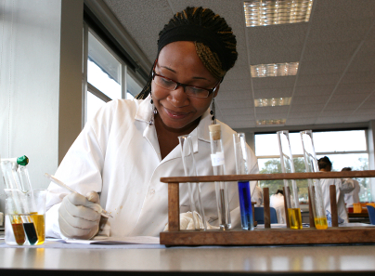美国国家环境健康科学研究所(NIEHS)是美国国立卫生研究院(NIH)的27个机构或中心之一。 它致力于发现环境如何影响人们,以促进更健康的生活。
作为致力于利用环境科学了解人类疾病和改善人类健康的最大的研究机构之一,NIEHS促进科学学习和发现,并为所有年龄段的学生提供学习机会,NIEHS每年会在现场培训200多名研究员和博士后科学家。
NIEHS在使环境卫生研究响应美国人民的需求和关切并使环境成为公共卫生辩论的一部分方面取得了长足的进步。环境正义是NIEHS研究的永恒核心价值。通过承认和管理美国的环境来预防疾病仍然是NIEHS员工和该研究所的研究合作伙伴的动力和目标的来源。
NIEHS研究使用最先进的科学和技术来调查环境暴露,人类生物学,遗传学和常见疾病之间的相互作用,以帮助预防疾病和改善人类健康。但是,在NIEHS进行的研究通常是长期和高风险的,并且涉及独特的组成部分,例如环境相关疾病的流行病学研究,环境物质的毒理学测试以及干预和预防研究,以减少暴露于危险环境的影响。

The National Institute of Environmental Health Sciences (NIEHS) is one of 27 institutions or centers at the National Institutes of Health (NIH). It is dedicated to discovering how the environment affects people to promote healthier lives.
As one of the largest research institutions dedicated to using environmental science to understand human diseases and improve human health, NIEHS promotes scientific learning and discovery and provides learning opportunities for students of all ages, and NIEHS trains more than 200 researchers and postdoctoral scientists on-site each year.
NIEHS has made great strides in making environmental health research responsive to the needs and concerns of the American people and making the environment part of the public health debate. Environmental justice is an eternal core value of NIEHS research. Preventing disease by acknowledging and managing the U.S. environment remains a source of motivation and goals for NIEHS employees and the Institute's research partners.
NIEHS research uses state-of-the-art science and technology to investigate the interplay between environmental exposure, human biology, genetics, and common diseases to help prevent disease and improve human health. However, studies conducted at NIEHS are usually long-term and high-risk and involve unique components such as epidemiological studies of environment-related diseases, toxicological testing of environmental substances, and intervention and prevention studies to reduce the effects of exposure to hazardous environments.